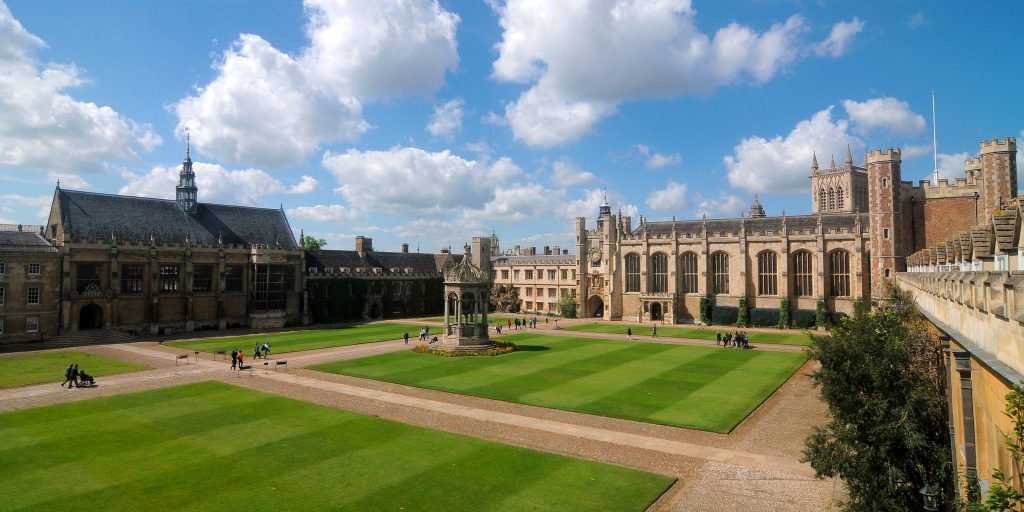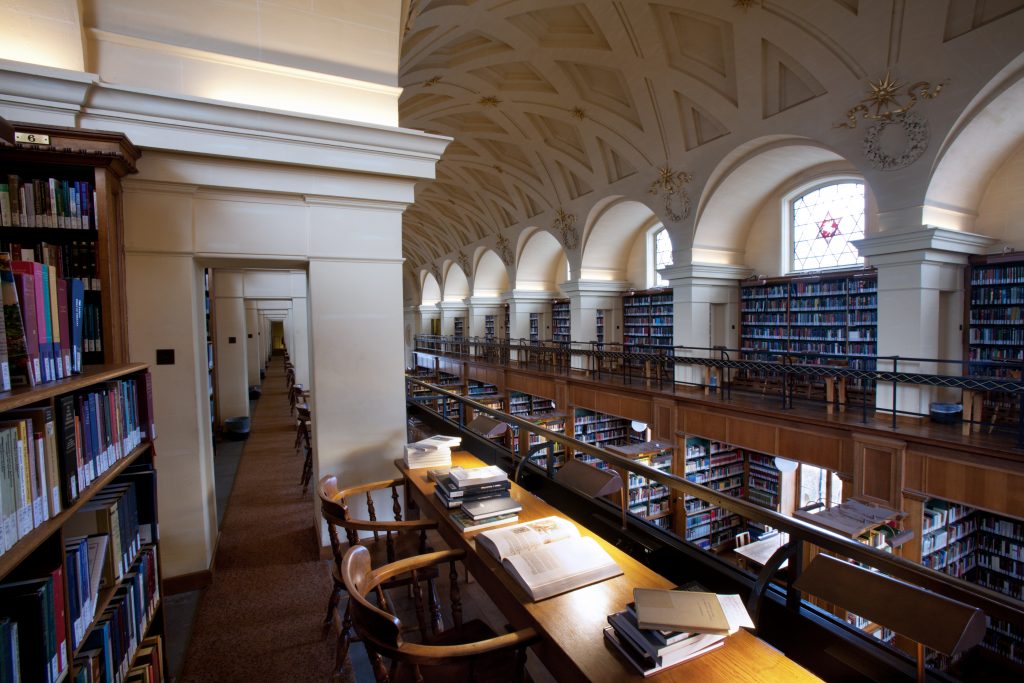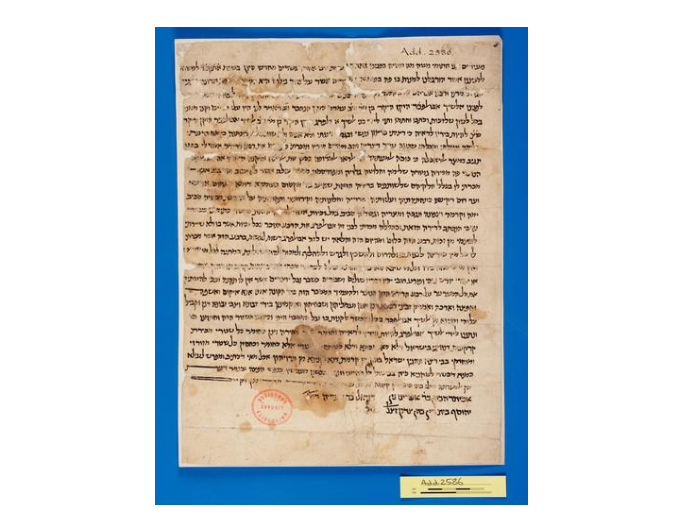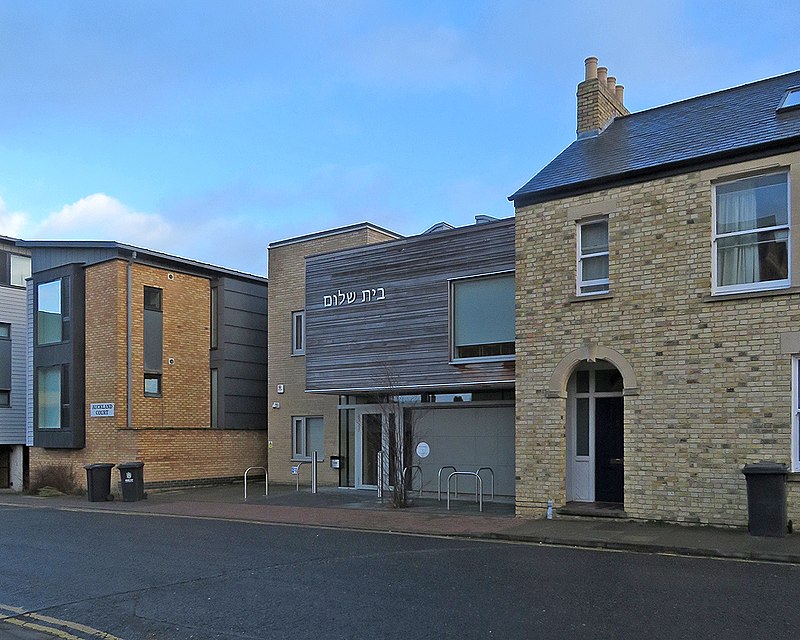The first administrative traces of the presence of Jews in Cambridge seems to date from the 13th century. About fifty Jewish families are recorded in documents between 1224 and 1240.
In 1275, the Jews were expelled from Cambridge and the rest of the region under the tutelage of Eleonore de Provence, mother of Edward I. The latter expelled the Jews of the Kingdom by the Edict of 1290 which was not annulled until 1656 by Oliver Cromwell.

Jewish participation in the intellectual life
Returning to Cambridge several centuries later, Jews contributed to the intellectual life of the university town. Among them, Isaac Lyons, Isaac Abendana, Joseph Crool and Herman Bernard.
While there were many Jewish teachers over the centuries, students were only admitted as non-graduate free listeners until 1856. When this discrimination ended, Jews actively participated in the development of the university, as students, professors and administrators.
Hebrew-language manuscripts collected by orientalist Thomas Erpennius were donated to the University Library in 1632. Fifteen years later, the library housed the Hebrew books of Italian rabbi Isaac Faragi.
The visit to the Jewish cultural heritage of Cambridge, a prestigious university town, takes place above all within its collection of rare and ancient manuscripts, which total more than 3,000 sources.

The treasures of the Cairo genizah
Another university acquisition is the Taylor-Schechter Cairo collection. It is the largest collection of medieval Jewish manuscripts. For a thousand years, the Jewish community of Fustat in Cairo kept its ancient writings and books in the genizah of the Ben Ezra synagogue.
In 1896, Cambridge professor Solomon Schechter studied these archives on the spot, with the financial support of the leader of St John’s College, Charles Taylor. He obtained permission from the Egyptian Jewish community to bring the documents to Cambridge. The fund consists of 193,000 manuscripts. Among them are religious but also civil texts, on the philosophy of Sufism and Shiite currents, Arabic poems, medical books and letters. The interest of the archives therefore goes beyond researchers in Jewish studies and is addressed to all medievalists. Some of the archives digitalized can be accessed on this link.

The Mosseri Collection
The Cambridge Library also received 7,000 documents from the Mosseri family for a 20-year loan. The Jacques Mosseri Genizah Collection, assembled by this Egyptian businessman at the start of the 20th century, is also of great interest to researchers. Some of the documents are accessible online on the University of Cambridge website.
Since the end of the last century, the city has had around 500 Jews, and a similar number of Jewish students at its university.
The Cambridge Traditional Jewish Congregation welcomes many students. Like the Beth Shalom Liberal Synagogue , opened in 1981. The Chabad House was founded in 2003.
